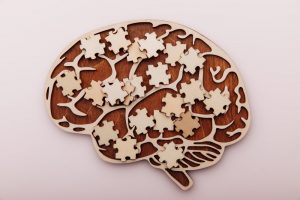If you or a loved one are receiving end-of-life care, you may be looking for ways to bring a little joy to each day. Hospice care is focused on managing the patient’s symptoms and improving their quality of life, including their mental and emotional health. In recent years, music therapy has grown in popularity. Research shows that music therapy can mentally, physically, and emotionally benefit hospice patients.
But what exactly is music therapy, and how can it help? Keep reading to find out!
What is Music Therapy?
While listening to music can be helpful for hospice patients, music therapy takes things a step further. Typically, a certified music therapist will assess the patient and determine how to use music intervention to help them in a specific area.

Depending on the patient’s needs, a music therapist may use live music or a customized playlist. Some music therapists combine relaxation techniques, like visualization or breathing techniques, with music. Sometimes, the patient will play music, sing, move to music, write songs, or analyze lyrics.
It’s important to note that music therapy may not benefit everyone. Some patients may have music-related triggers. A certified music therapist will consider each patient’s needs and preferences.
Music therapy may provide the following benefits to hospice patients:
Benefit #1: Helps manage pain

As surprising as it may seem, research shows that music can help with pain management. Because music acts as a distraction, it can provide short-term relief from pain. Additionally, music therapy can help with emotional pain and distress and improve patients’ mental health. If a patient is agitated, anxious, or depressed, music can create a calming atmosphere and help them relax.
Benefit #2: Encourages communication

Sometimes music helps us express emotions that we can’t put into words. As a patient copes with their terminal diagnosis, they may struggle to understand or communicate their feelings. Music can help them recognize their feelings – whether through lyrics that they relate to or through the emotions the music evokes. Plus, music provides an outlet to physically express those feelings by singing or moving to the beat.
Benefit #3: Boosts memory

For patients struggling with dementia, music may boost memory. Have you ever listened to a song and remembered something you did in the past while it was playing? Sometimes, we associate songs with strong memories, like our first prom or walking down the aisle at a wedding. Listening to familiar songs can help patients, even those with Alzheimer’s or dementia, access their long-term memory.
Benefit #4: Connects people

Many people who are in hospice struggle with feeling isolated and lonely. But music has a way of connecting us to others. Not only does the patient develop a beneficial relationship with the music therapist, but music can also increase empathy. This increase in empathy may help ease tense relationships with family members. On top of that, music also brings other social aspects into play. Music brings people together, whether the patient shares their favorite songs with loved ones or connects with another patient who likes the same musical genre.
Benefit #5: Improves quality of life

For many patients, music therapy can improve their quality of life by helping them relax and providing comfort. Favorite songs can create a familiar environment and help patients feel more at home. Additionally, music therapy can help patients remember the happy moments they’ve spent with loved ones.
While music therapy may not be the right fit for everyone, many potential benefits exist for those in hospice care. From managing pain to releasing tension, music therapy can help improve a patient’s quality of life and make the transition to end-of-life care a little easier.




